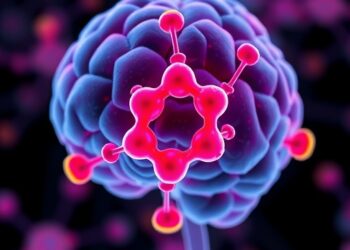SAN ANTONIO (May 29, 2024) – SARS-CoV-2, the virus that causes COVID-19 disease, continues to evolve and evade current vaccine and therapeutic interventions. A consortium of scientists at Texas Biomedical Research Institute (Texas Biomed), the University of Alabama at Birmingham (UAB) and Columbia University have developed a promising new human monoclonal antibody that appears a step closer to a universal antibody cocktail that works against all strains of SARS-CoV-2.
SAN ANTONIO (May 29, 2024) – SARS-CoV-2, the virus that causes COVID-19 disease, continues to evolve and evade current vaccine and therapeutic interventions. A consortium of scientists at Texas Biomedical Research Institute (Texas Biomed), the University of Alabama at Birmingham (UAB) and Columbia University have developed a promising new human monoclonal antibody that appears a step closer to a universal antibody cocktail that works against all strains of SARS-CoV-2.
“This antibody worked against the original SARS-CoV-2 strain, Omicron and SARS-CoV, providing strong evidence that this antibody will continue to work against future strains, especially if paired with other antibodies,” says Luis Martinez-Sobrido, Ph.D., a Professor at Texas Biomed and co-lead author of the research, which is published as a preprint on BioRXiv.
Antibodies are part of the human immune system that track, bind to and destroy extraneous material like viruses and bad bacteria. Human monoclonal antibodies are lab-made proteins that mimic the human process and stimulate the body to produce its own antibodies, enhancing the ability to fight back against illnesses.
While existing antibody treatments have helped many patients with COVID-19, some treatments have been rendered infective because the virus evolved and the antibodies could no longer physically bind to the targeted region – in other words, the key no longer fit the lock.
The newly designed antibody, called 1301B7, is a receptor binding domain antibody, meaning it targets a region of the spike protein responsible for enabling the virus to bind and enter a cell. By targeting this region, these antibodies are essentially stopping the virus before they can infect a cell.
“The antibody binds to multiple positions within the receptor binding domain, which is thought to enable it to tolerate variations that occur in this domain as the virus continues to evolve,” says James Kobie, Ph.D., an Associate Professor at UAB and co-lead author of the paper. The precise nature of how the antibody binds to the receptor binding domain was solved by Mark Walter, Ph.D., a Professor at UAB and co-lead paper author.
The monoclonal antibody is designed based on antibodies the UAB team isolated from patients infected with the Omicron variant of SARS-CoV-2. The teams at Texas Biomed and Columbia University tested the antibody against several variants including the original SARS-CoV-2 isolated in China, Omicron JN.1 and SARS-CoV.
In 2022, the researchers described a monoclonal antibody targeting a different part of the spike called the stalk. The researchers plan to next study what happens when they combine the two antibodies together, attacking the virus from different angles and hopefully preventing it from escaping neutralization.
“A single antibody therapy is not going to work, so we may have to try something similar to therapies being developed for other diseases like Ebola and HIV whereby two or three antibodies are combined to target different regions of the virus,” explains Dr. Martinez-Sobrido.
They are also interested in adapting the antibodies into a preventative vaccine.
“We are also trying to design vaccines that would be able to induce these types of antibodies so we don’t have to update vaccines regularly,” says Dr. Martinez-Sobrido.
The consortium of scientists has filed a provisional invention patent for 1301B7 and is in the process of licensing it for commercialization.
—
Scientists from Dr. Martinez-Sobrido’s lab at Texas Biomed involved in this study include Ahmed Magdy Khalil, Ph.D., Ahmed Mostafa, Ph.D., Yao Ma, Ph.D. and Chengjin Ye, Ph.D.
Funding for this work was largely provided by the National Institutes of Health 1R01AI161175.
About Texas Biomed
Texas Biomed is a nonprofit research institute dedicated to protecting the global community from infectious diseases. Through basic research, preclinical testing and applied innovation, we accelerate diagnostics, therapies and vaccines for the world’s deadliest pathogens. Our San Antonio campus hosts high containment laboratories and the Southwest National Primate Research Center. Our scientists collaborate with industry and researchers globally, and have helped deliver the first COVID-19 vaccine, the first Ebola treatment and first Hepatitis C therapy. For more information, visit txbiomed.org.




